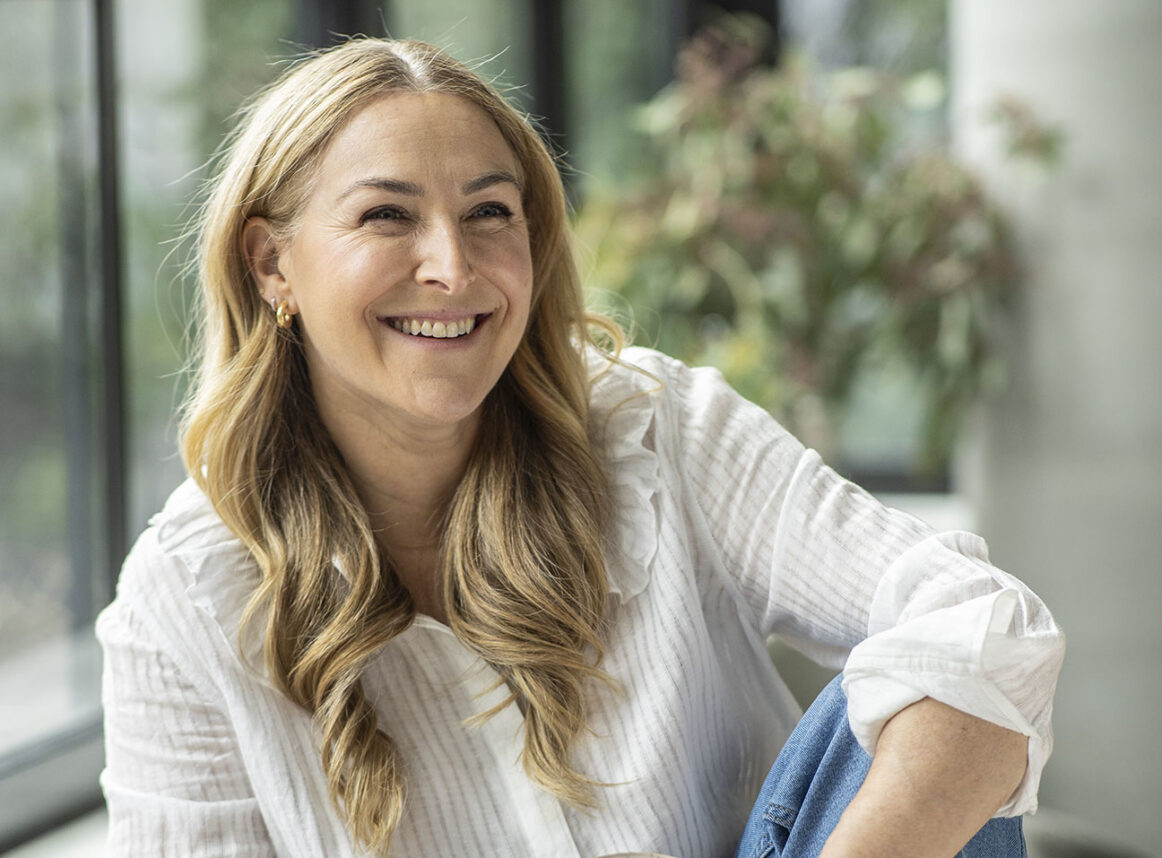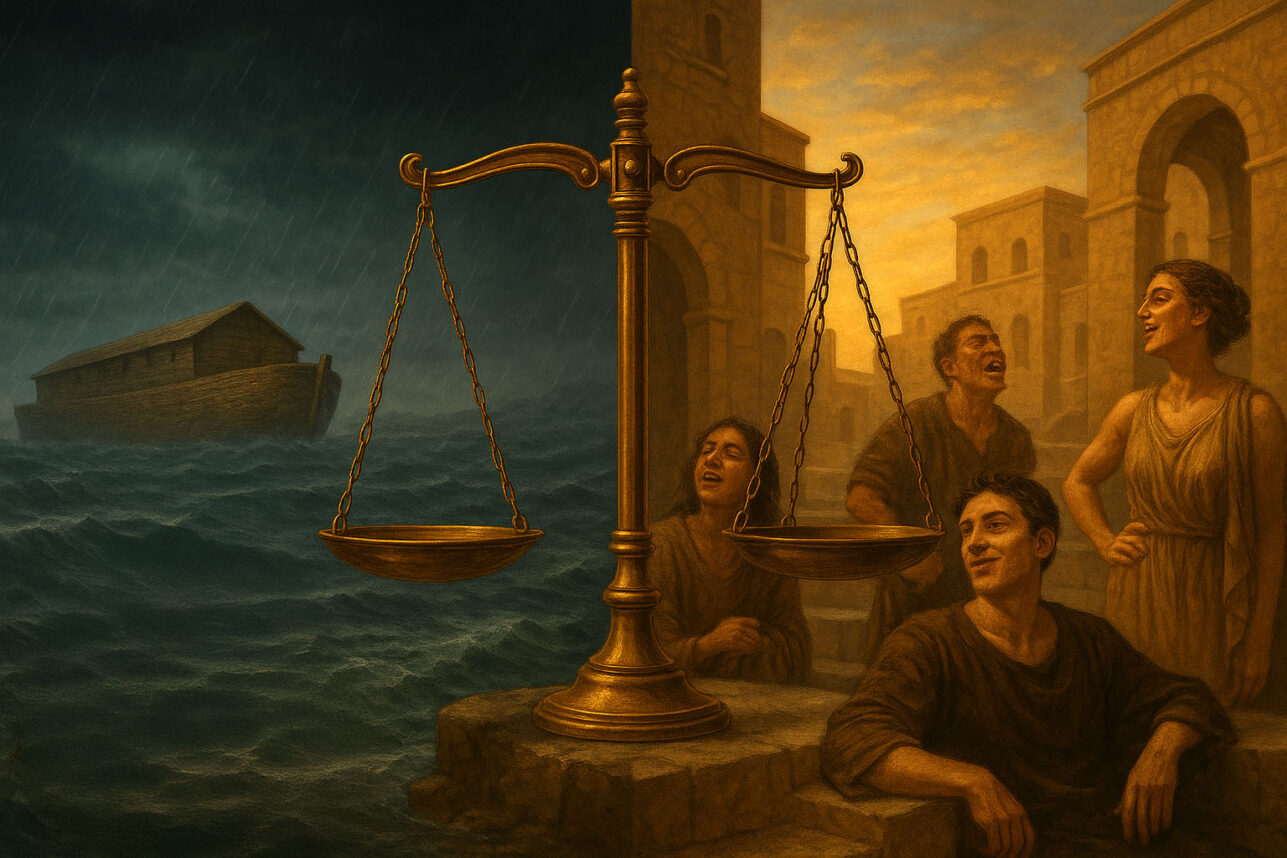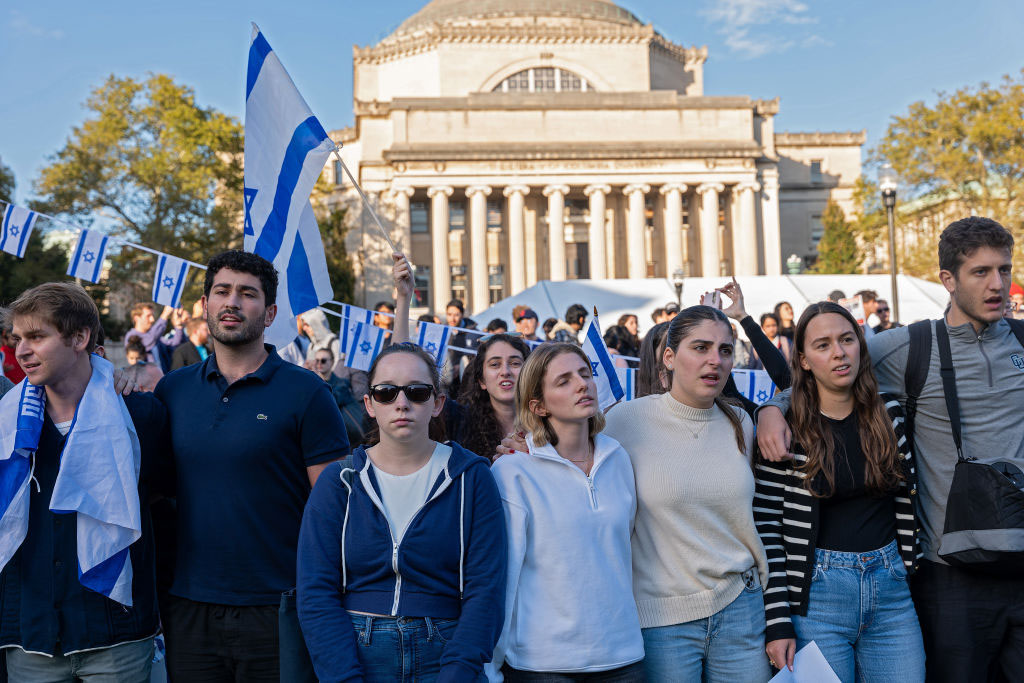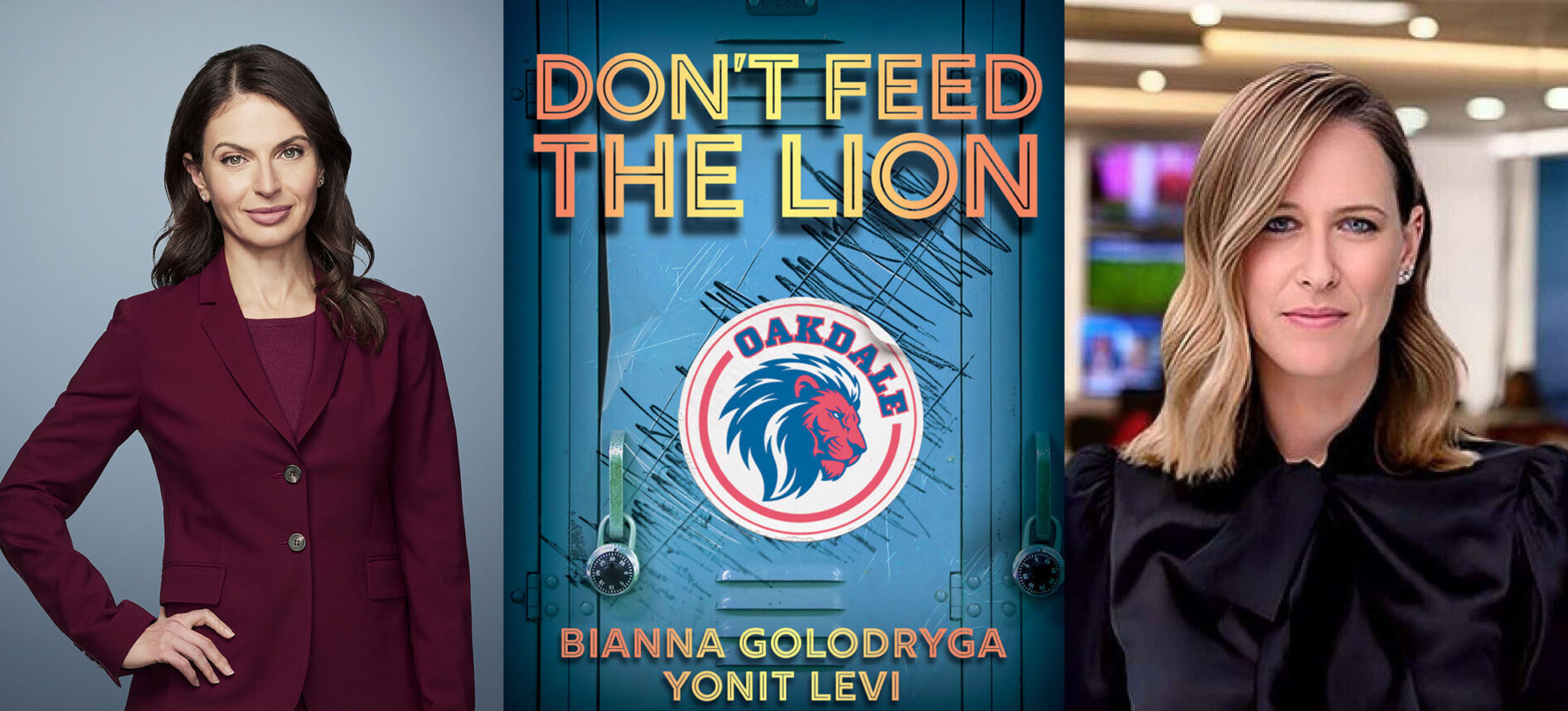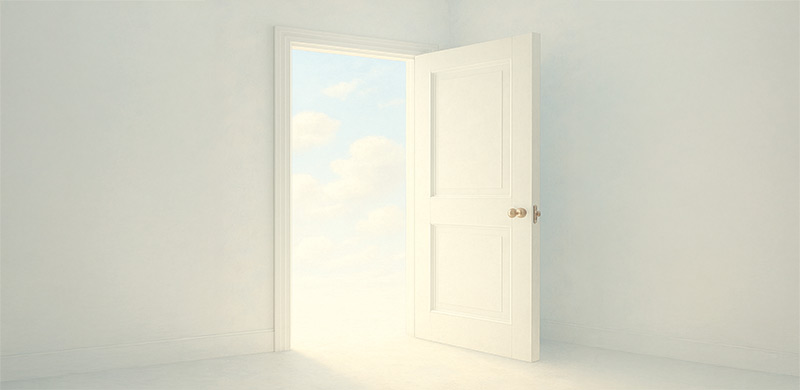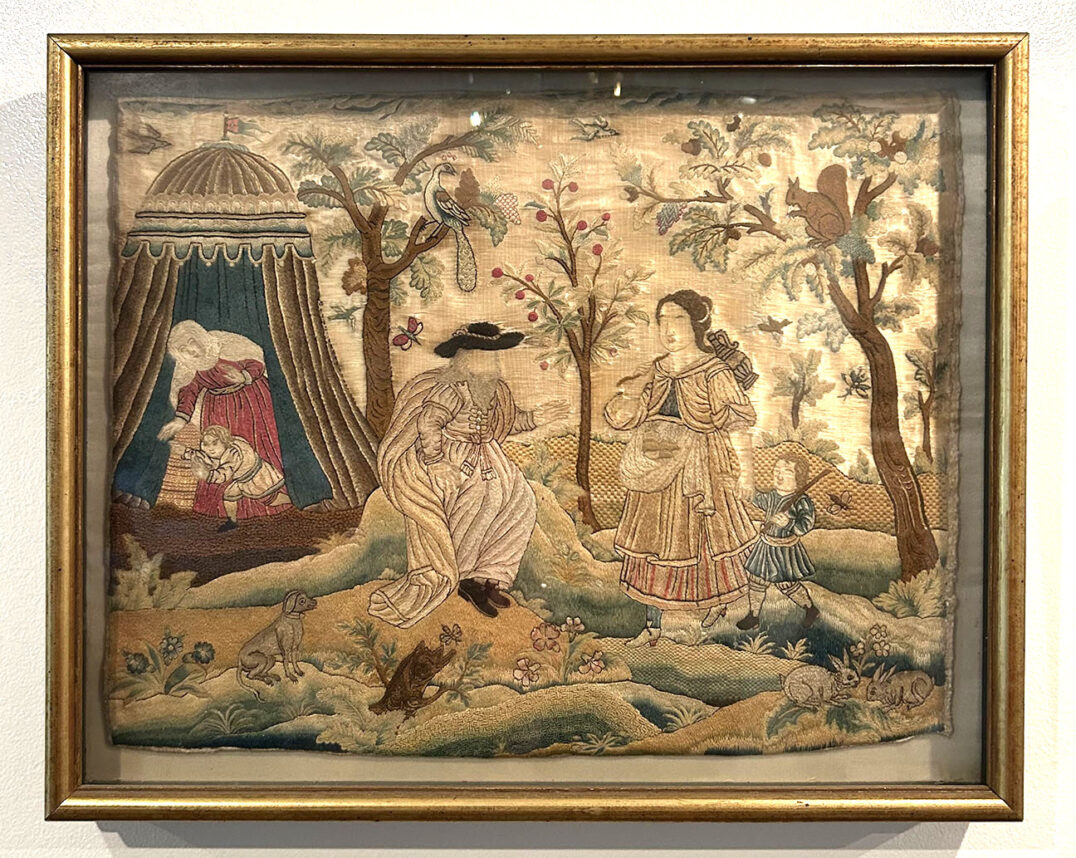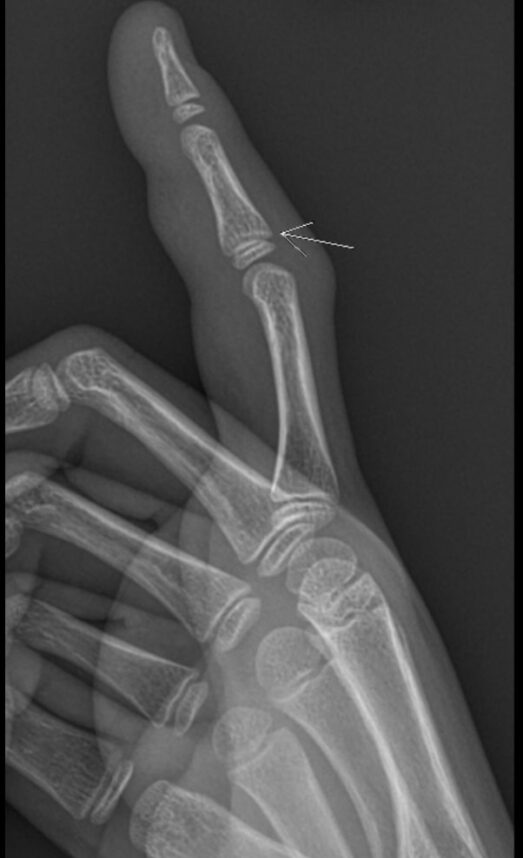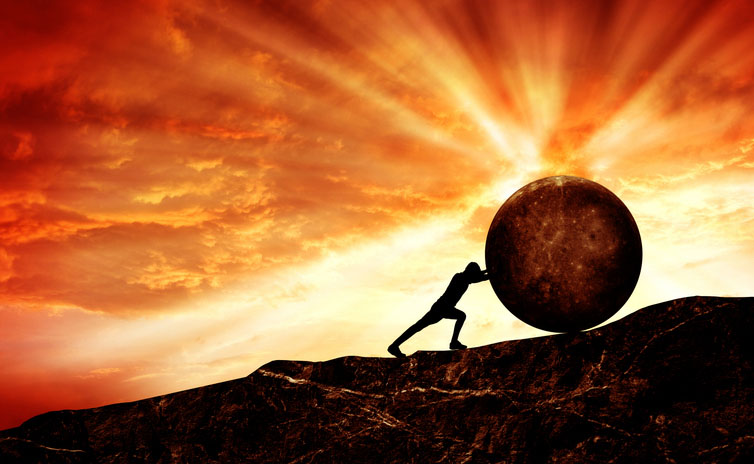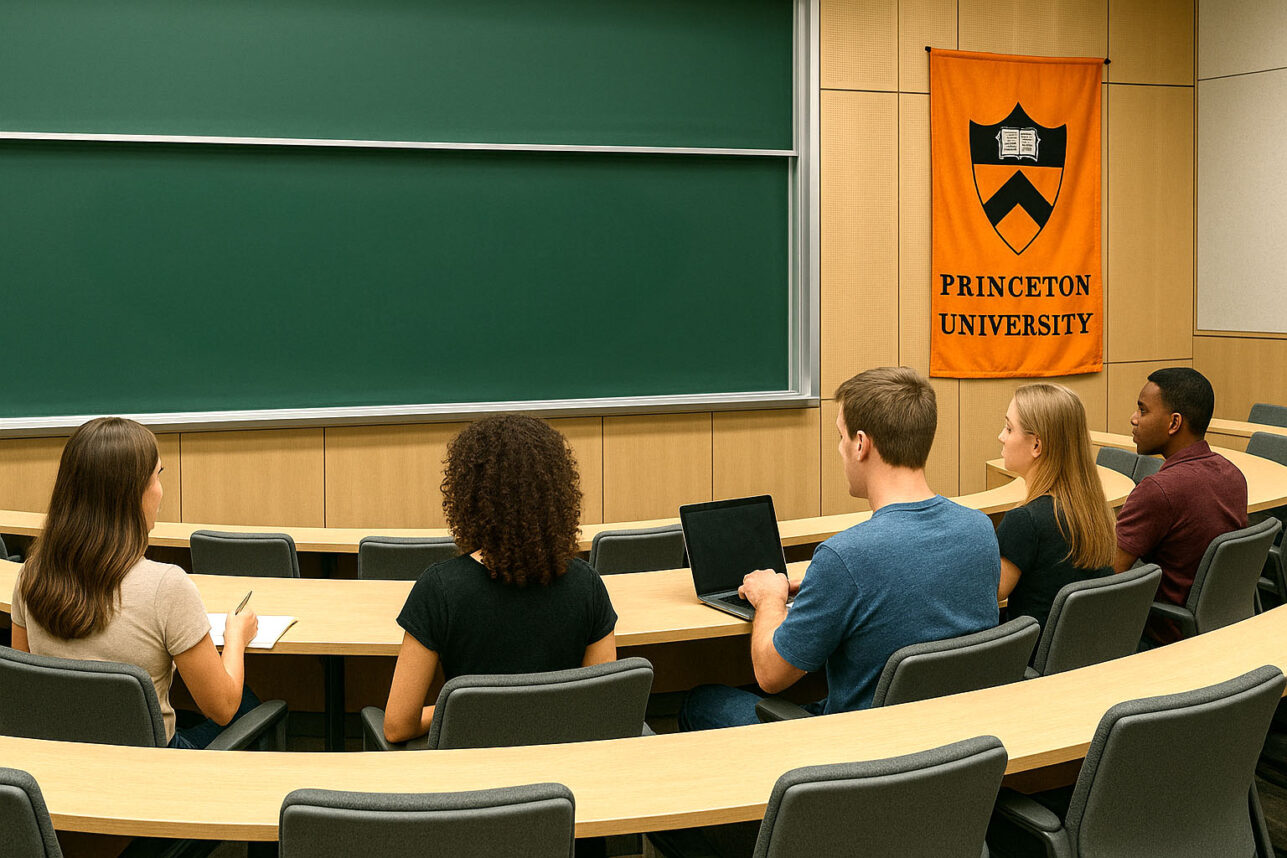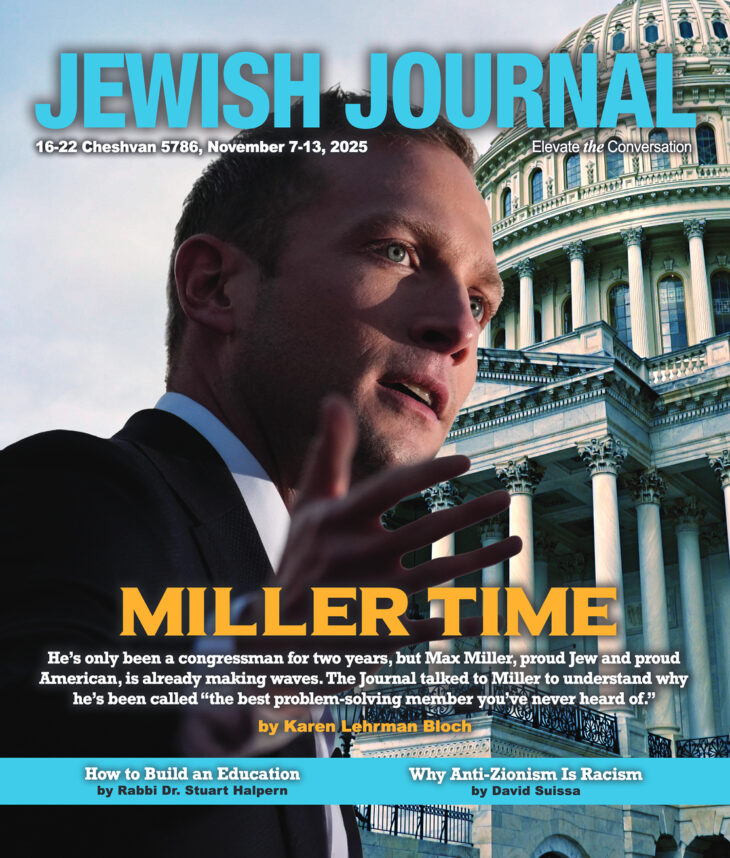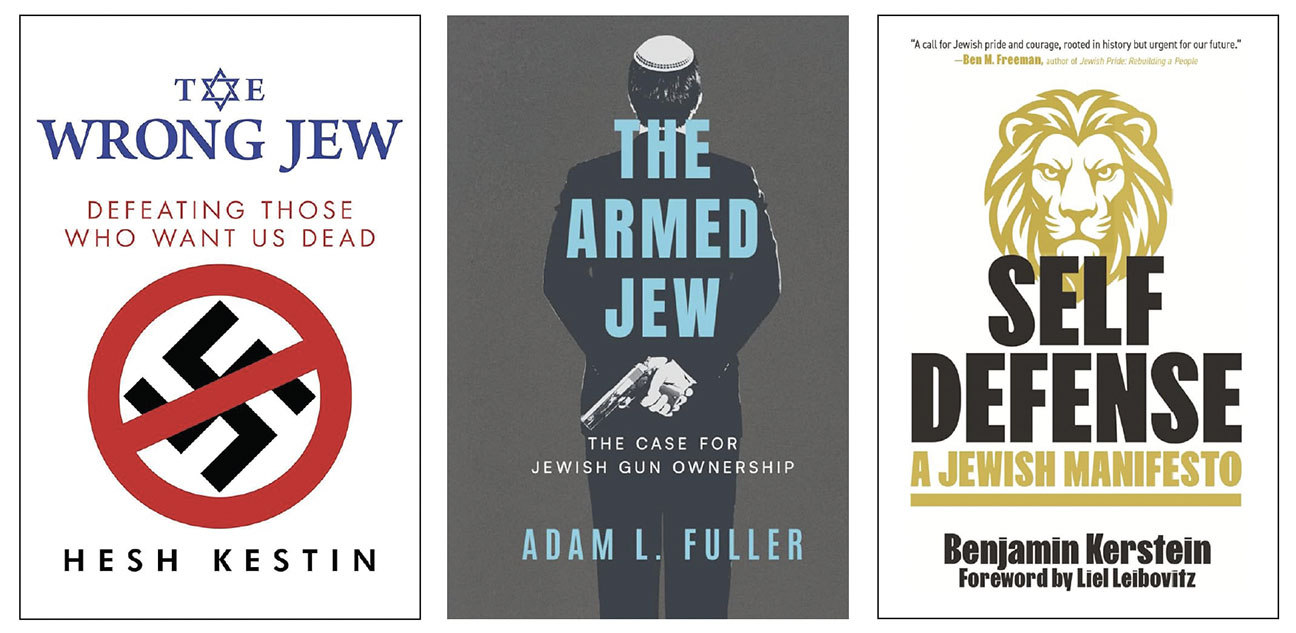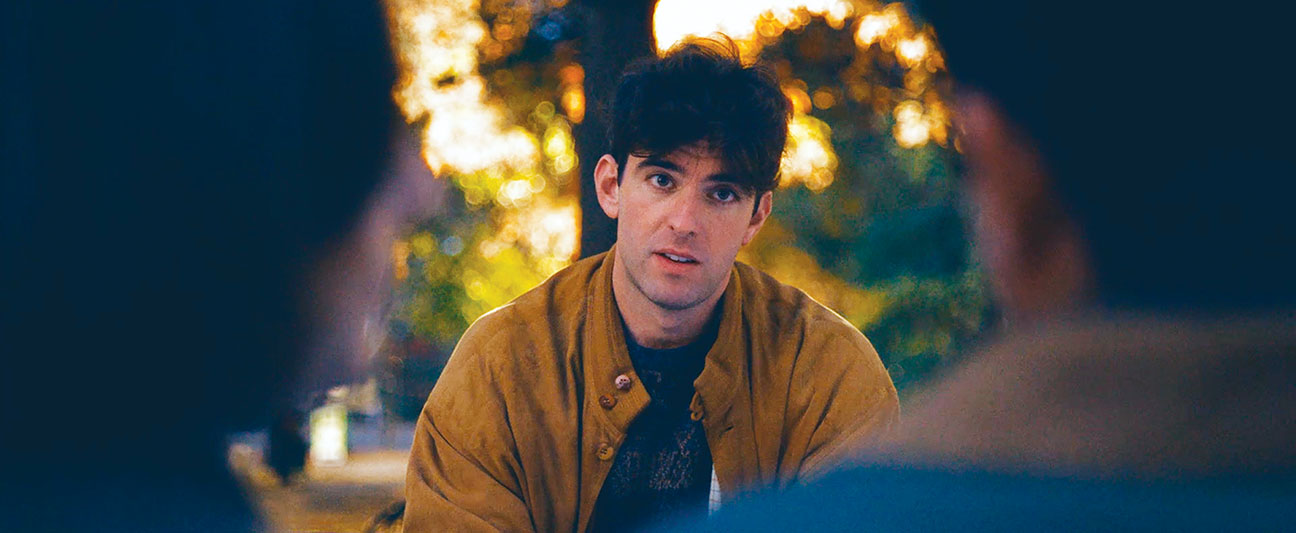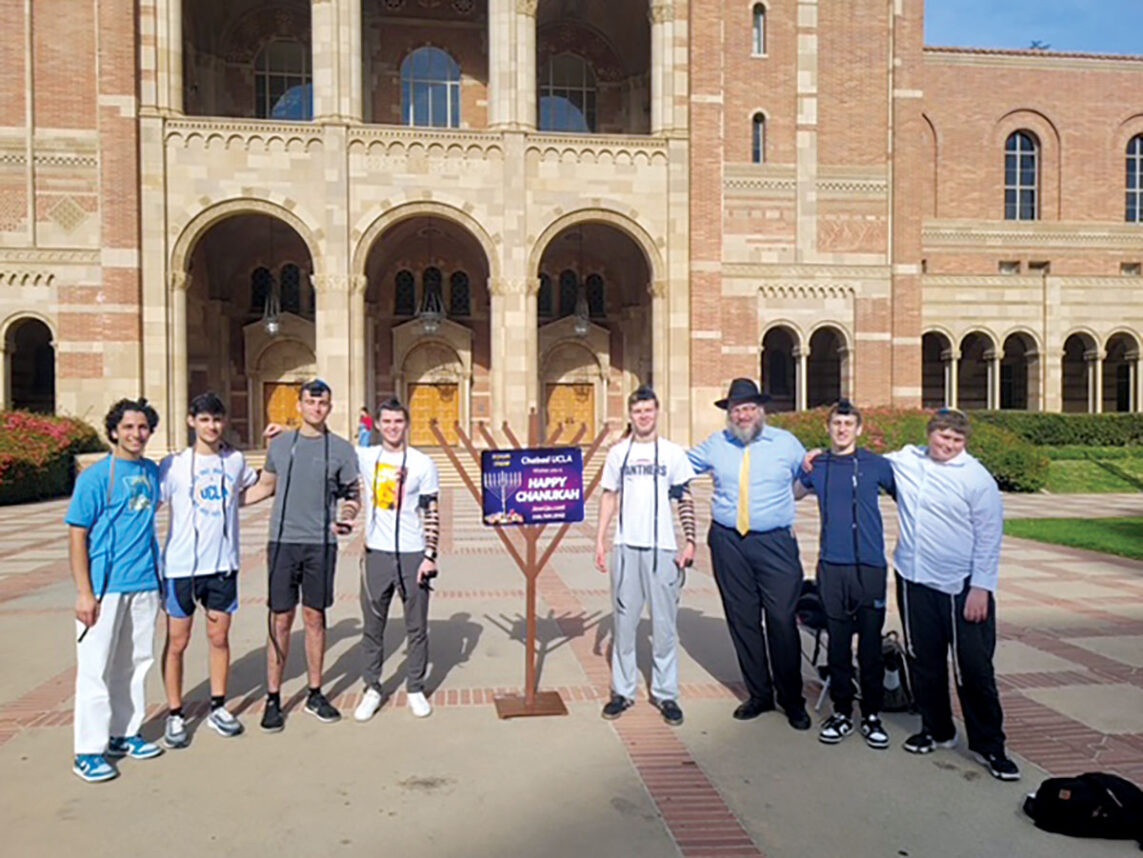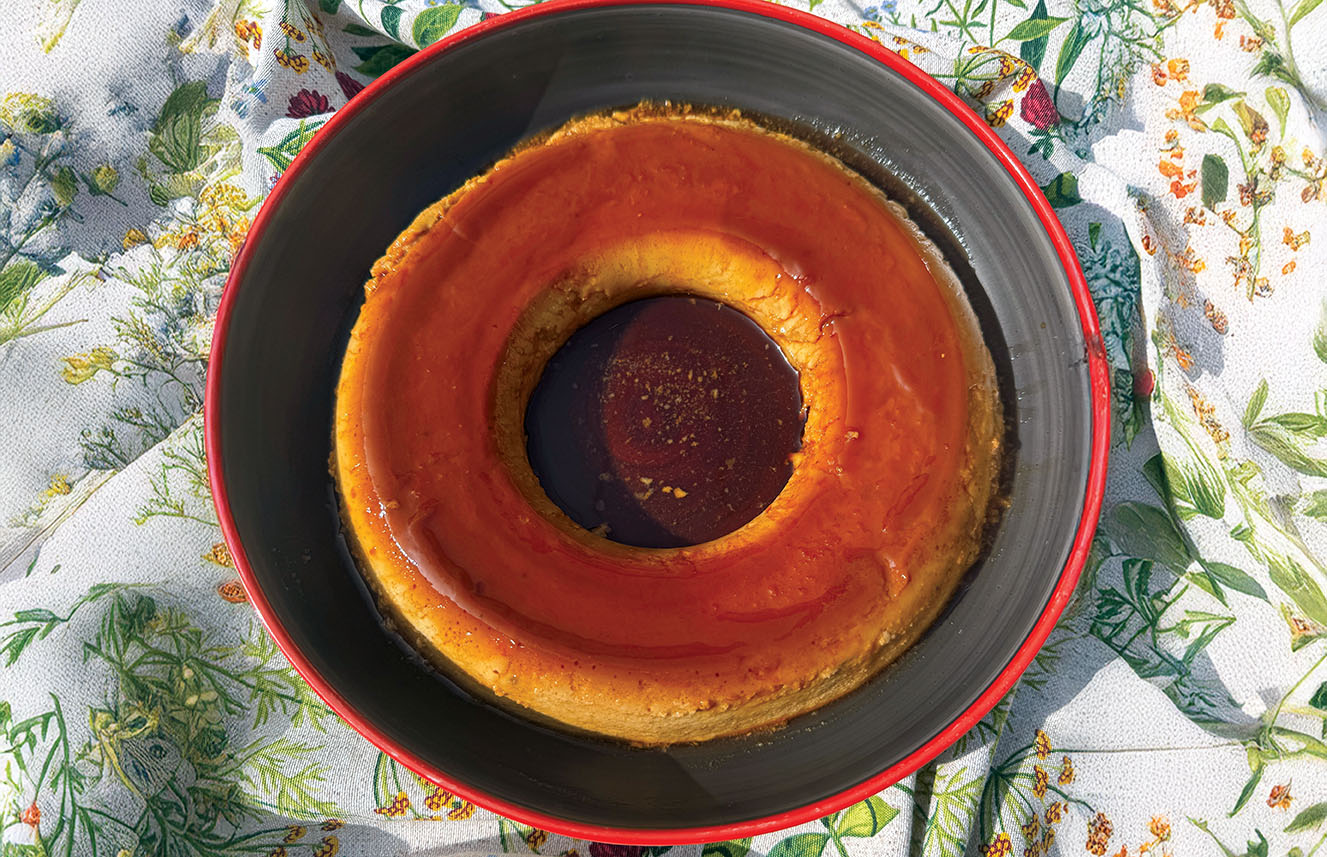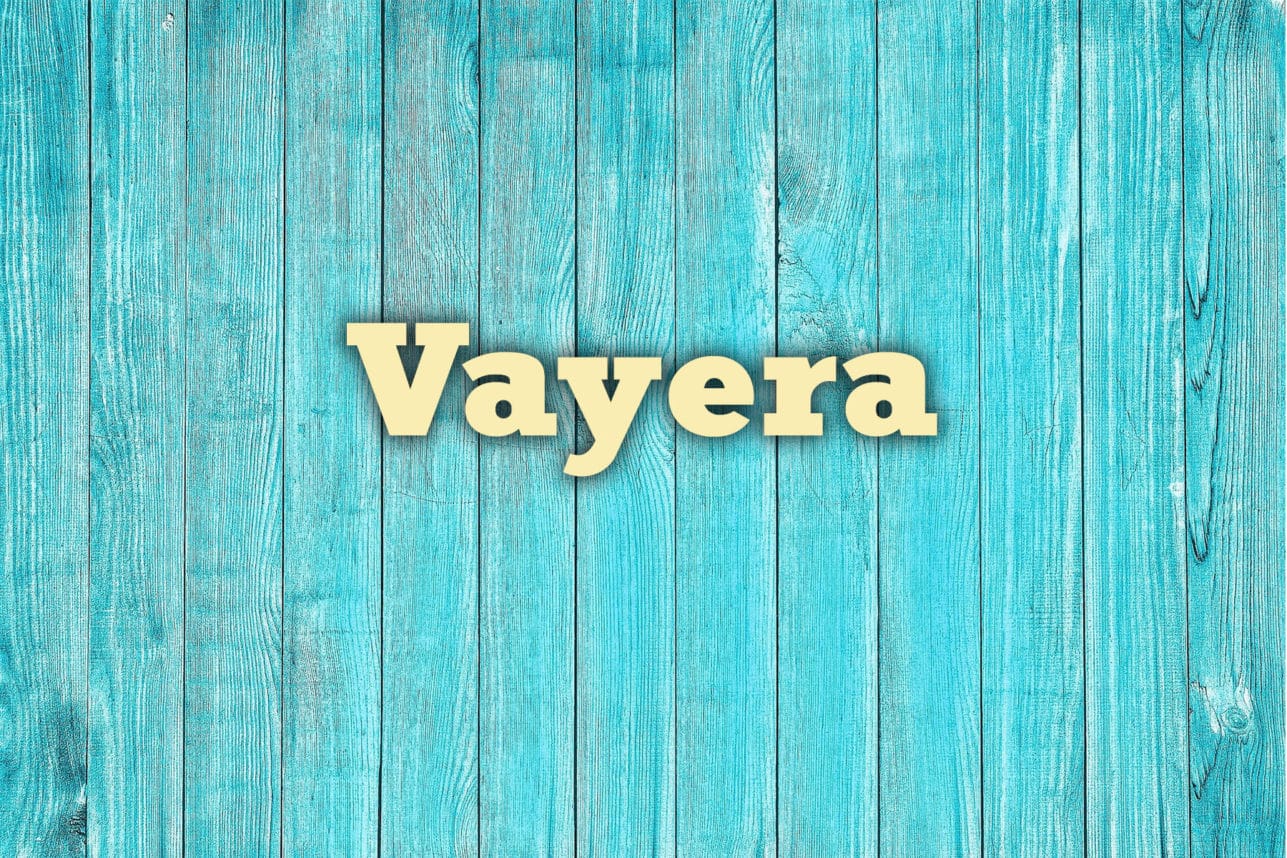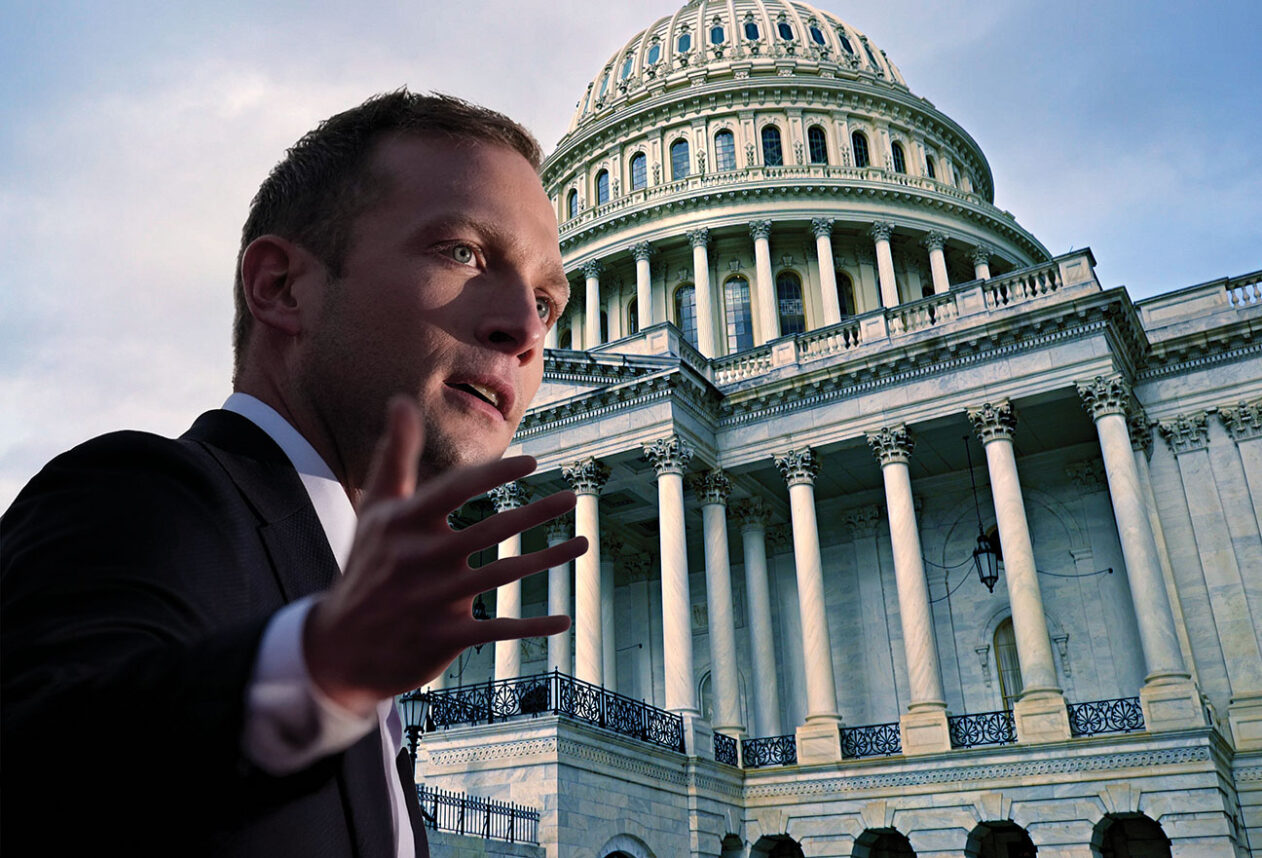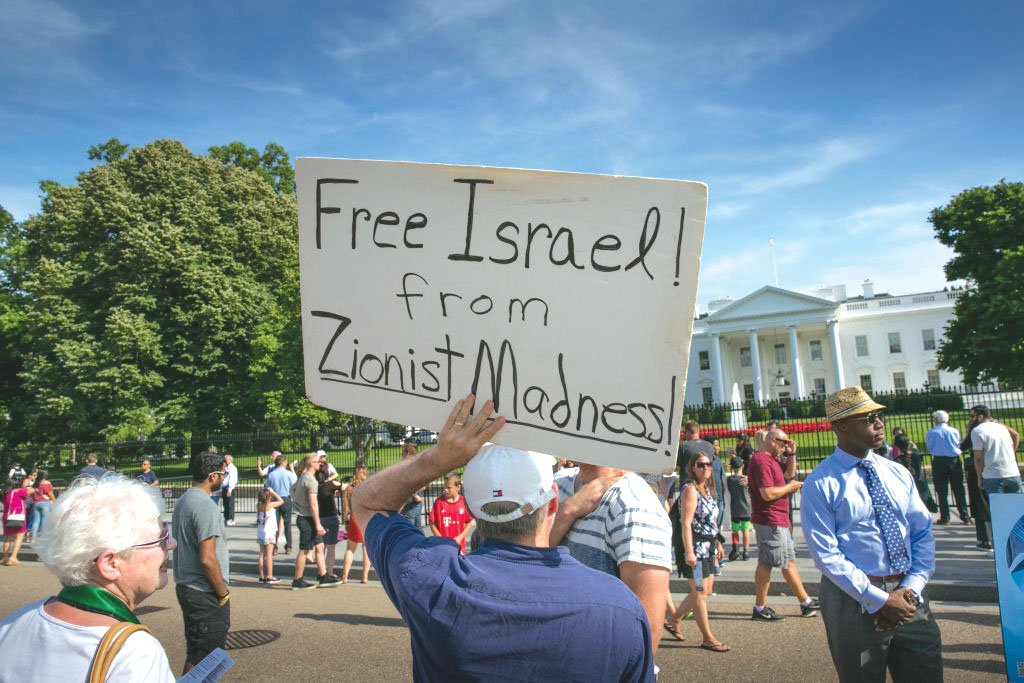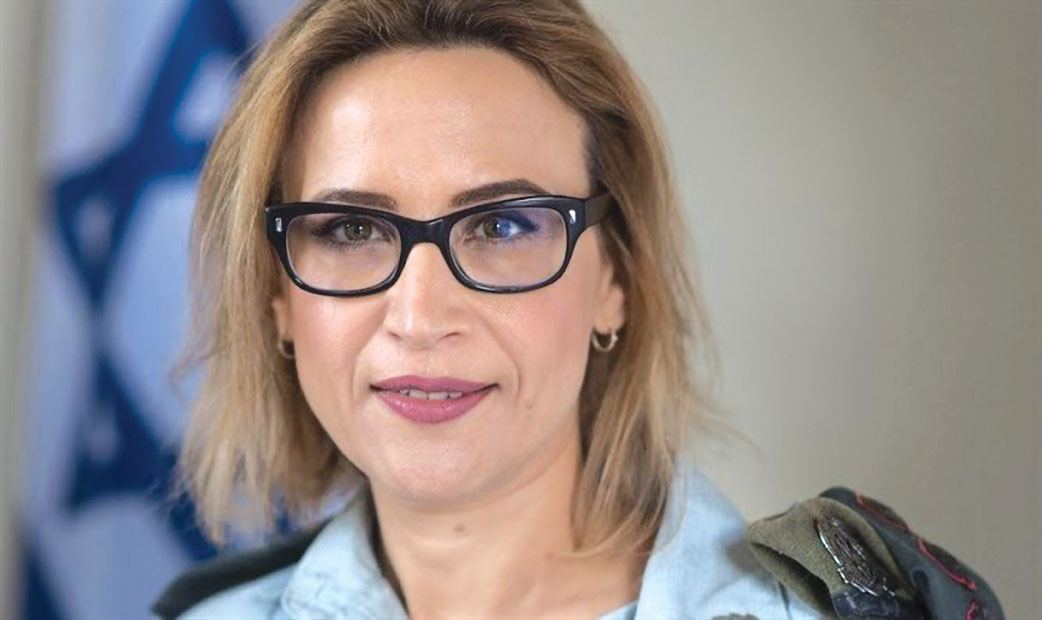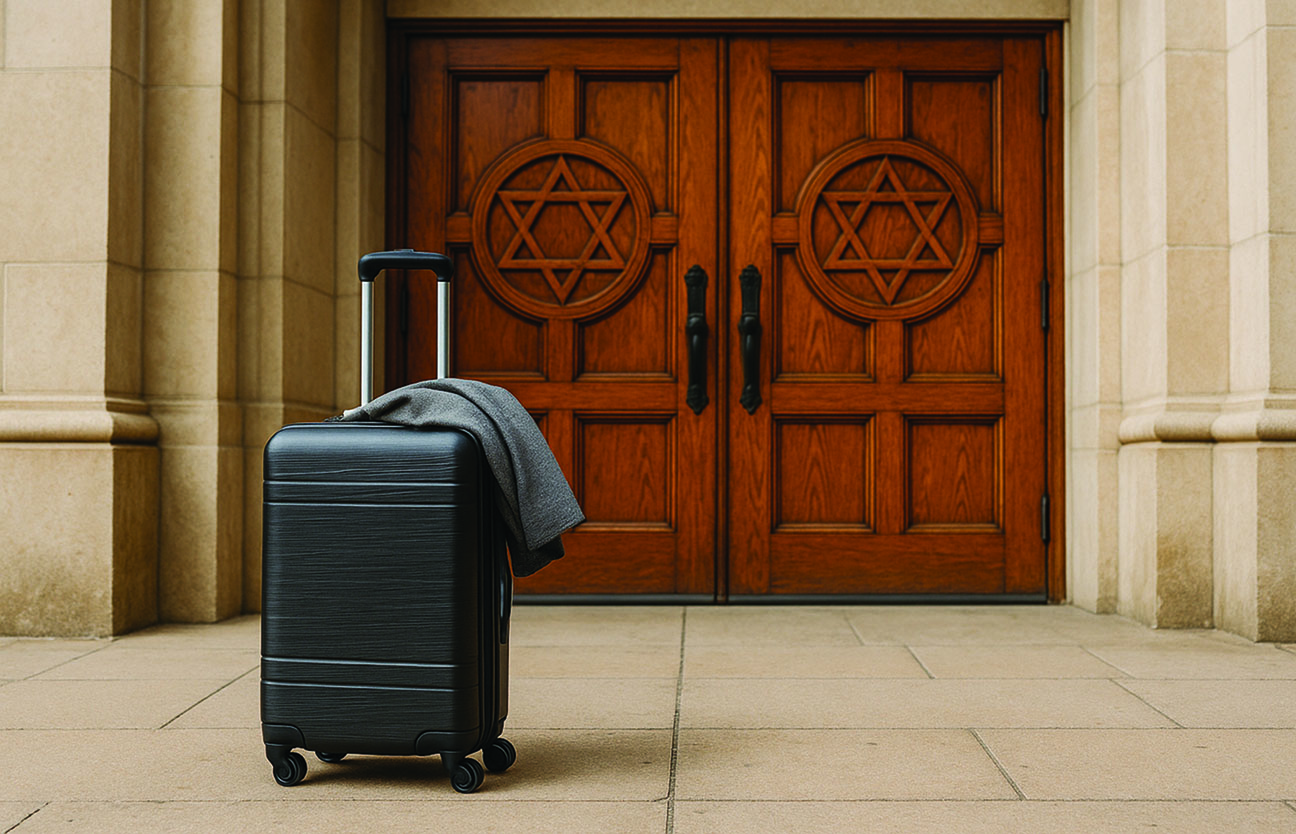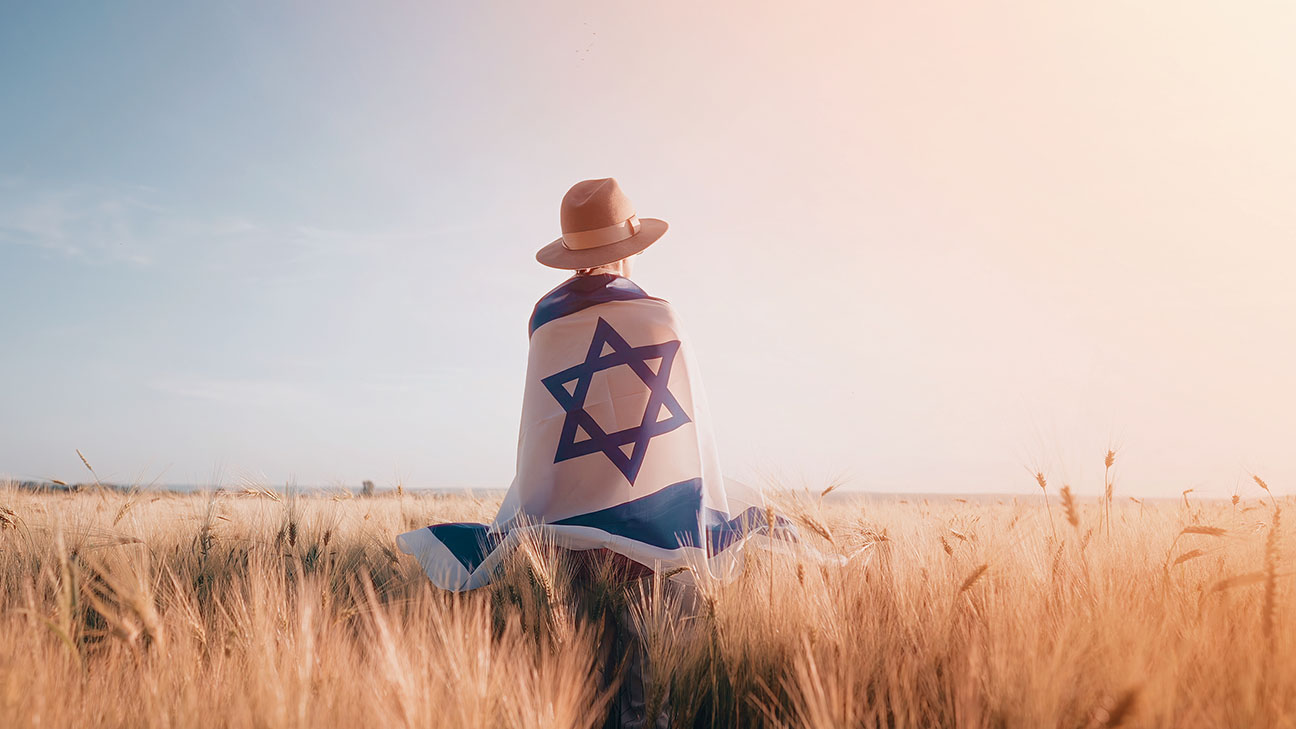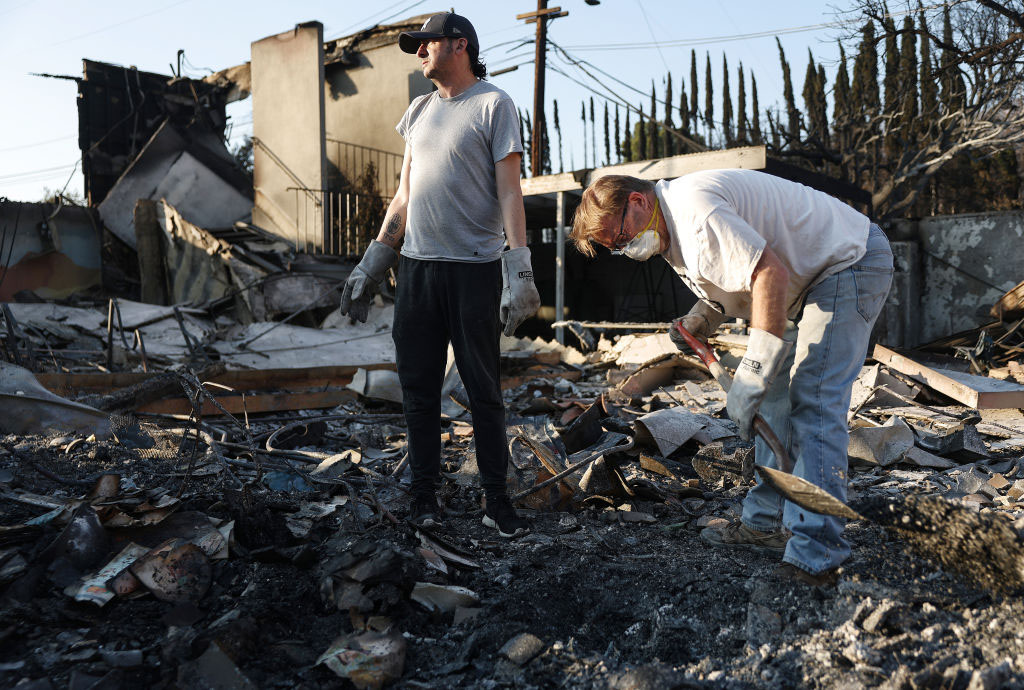
This morning I attended Shabbat services alongside the members of the Pasadena Jewish Temple & Center (PJTC) congregation.
PJTC is a community in mourning. Their historic synagogue was tragically destroyed by the Eaton fire, and a number of their congregants lost their homes.
The temple was established a century ago, with its latest building constructed during World War II. While so much history was erased, they were able to save 13 Torah scrolls and, miraculously, when the embers were finally extinguished, they discovered a mural on one of the few remaining walls. It had been long hidden as a result of building updates, and it depicted the Israelites wandering through the desert. Alas, these congregants, like so many Jews throughout the diaspora, have been forced to wander again.
But not today. Rabbi Brian Schuldenfrei of Adat Ari El in Valley Village offered to turn over our sanctuary to PJTC, and their members showed up in large numbers, supplemented by many of us from Adat Ari El. An overflow crowd packed our prayer hall, and we enjoyed a service led by PJTC’s Rabbi Jill Gold Wright and Cantor Ruth Berman Harris. On top of it all, the service included a celebration of one of their young members becoming a bar mitzvah.
For Adat Ari El’s Shabbat regulars, it was an experience that was unlike what we are used to. There were several new tunes and a different prayer book. But the service reminded me once again of the fact that we Jews are a single people, with so much more in common than the minor differences that separate us might suggest.
Fittingly, the parsha was none other than the first chapter of Exodus, where the future of the Jewish people was forged out of fire. Moses stood before the burning bush, answering G-d’s call with the word hineni, “Here I am.” Moses was admonished by G-d not to approach until he removed his sandals since “the place on which you stand is holy ground.”
Between the charred ruins of Los Angeles and the stifling tunnels of Gaza, it is all too easy to despair, overlooking the holiness that surrounds us.
As the bar mitzvah boy explained, the PJTC community isn’t defined by a single building – it is an integral part of the greater Jewish world. Rabbi Gold Wright made the wonderful point that a Jew entering any synagogue is coming home. One of my all-time favorite lines is from Robert Frost who wrote that “Home is the place where, when you go there, / they have to take you in.” In that regard, Jews have homes, and can find holy ground, all over the world.
Jewish songwriter Craig Taubman’s beautiful song, “Holy Ground,” puts the passage in Exodus to music, and his lyrics speak to us so profoundly during times such as these. “In the bitter, in the sweet. In the calm, in the storm”; “When you hurt, when you heal. When you laugh, when you pray”; and “All of life is holy ground.”
From the vistas of the Pasadena hills to the beaches of Malibu to the sacred light of Jerusalem, we are blessed with inspiration wherever we need it.
The Jewish people have made innumerable contributions to humanity over time. From monotheism, to Shabbat, to countless advances in the sciences and the arts. And yet, former Israeli Prime Minister Shimon Peres said that the greatest gift the Jews have given the world is “dissatisfaction.” For Peres, Jewish ideals mean that we are continuously seeking to improve ourselves and the world. There is no room in the Jewish faith for complacency. We exude resilience.
I saw that this morning in the eyes of the PJTC members. There was optimism and gratitude rather than anger and misery. They will rebuild, as will the rest of Los Angeles. And those of us fortunate enough to be spared the pain of our latest trial, we will be standing beside them, reaching out our hands to help them rise again and reestablish their holy ground.
Morton Schapiro is the former president of Williams College and Northwestern University. His most recent book (with Gary Saul Morson) is “Minds Wide Shut: How the New Fundamentalisms Divide Us.”









